|
Comic PJ Gallagher...:
By Mary-Elaine Tynan
Sunday Independent
June 22, 2014
http://www.independent.ie/tablet/comment/comic-pj-gallagher-i-was-born-in-bessborough-but-i-got-away-with-it-i-feel-guilty-and-lucky-30374031.html
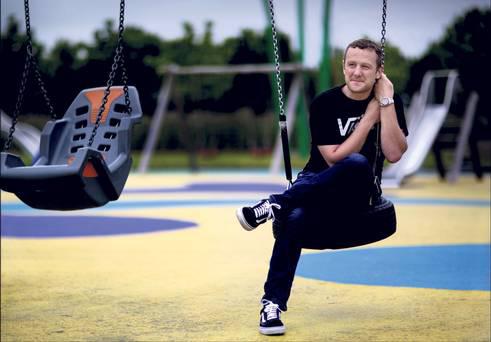 |
| Comedian Pj Gallagher who was in Bessborough house. |
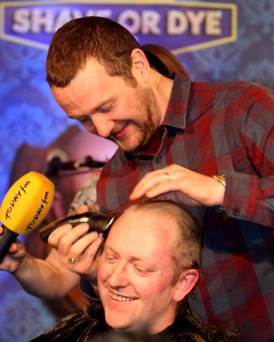 |
| The multi award winning, multi million euro making, multi record breaking Shave or Dye today set its 5th world record in a row for 'The Most Heads Shaved Simultaneously. |
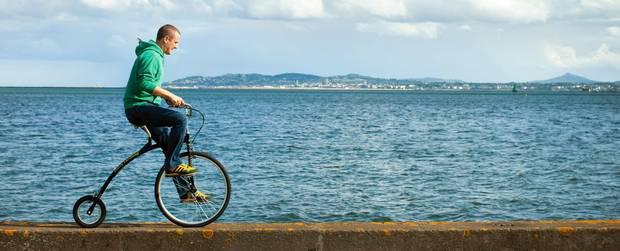 |
| 'Naked Camera' star and stand-up comedian PJ Gallagher enjoys sportives as they make you 'feel like a kid again on a bike |
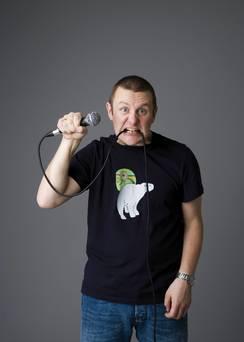 |
| PJ Gallaher finds comedic inspiration on his cycling travels - even in a Howth chipper van |
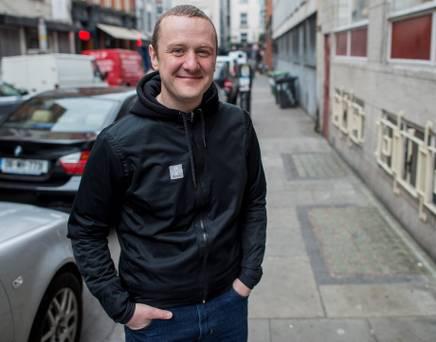 |
| PJ Gallagher. |
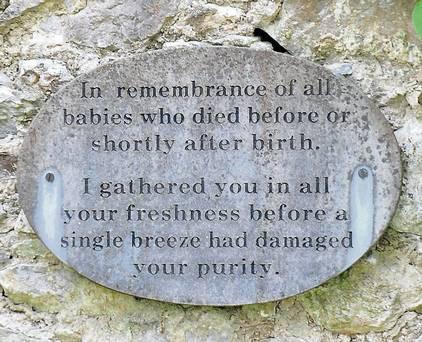 |
| Plaque at the 'Little Angels' plot in the graveyard at Bessborough. |
Comic PJ Gallagher: 'I was born in Bessborough but I got away with it. I feel guilty and lucky'
Early this month, however, his followers were greeted with the unexpected tweet: "I was born in Bessbourough [sic] House, reading this has upset me more than a little this morning".
The article attached described the unusually high death rate for children born in the Cork mother and baby home in the early Forties.
advertisement
Until around 10 years ago, this statistic would have been almost irrelevant since all PJ knew about his life was that he was born in April 1975, was placed briefly in foster care and then adopted by his parents through a Dublin agency.
Until he was in his 20s, PJ's family home in Clontarf doubled as a care facility for people with mental illnesses, many of whom had previously been in institutions. From his conversations with the people his mother cared for, PJ realised that most were still traumatised from those same institutions. And so, even before he learned the circumstances surrounding his own birth, he always felt great compassion for anybody in institutions.
Talking about early life as an adopted child, PJ considers himself very lucky not to have grown up in an atmosphere of "secrets and lies". In fact, he recalls with his signature grin, adoption was so normal for him that for many years he assumed all his friends were adopted, and baffled them with his questions about where they came from.
In his mid-20s and the year before the Naked Camera hit our screens, PJ decided to search for his birth parents and was asked by the adoption agency to write to them.
"I wrote a letter in one shot ... I didn't even read it back. Couldn't tell you what I wrote ... It was probably one long, big, ridiculous sentence with bad punctuation ... if I [overthought] it, it [wouldn't have] happened."
The Dublin comedian considers himself to be one of the lucky ones to have met his birth parents very soon afterwards. He was surprised to learn that they were still together, having married a number of years after he was given up for adoption and now live in the west of Ireland with their four other children, PJ's biological siblings.
When I ask him how he feels about not having grown up with the rest of his siblings, he seems unperturbed.
"It's unusual ... I'm somewhere else and everybody else isn't. But I'd grown up with it ... so I was ready for any answers. I was never going to be pulled apart," he says.
Over the years, PJ has uncovered various details about his birth, including that his mother went to Bessborough House in Cork when she was pregnant with him. PJ remembers being very shocked when he read June Goulding's memoir, The Light in The Window, about her time as a midwife in Bessborough in the Fifties.
"But I remember thinking it was ancient history and [I was born] 20 years after anything bad happened," he says.
PJ continued to believe this until a couple of weeks ago when the revelations emerged that the mistreatment of mothers and babies continued long after June Goulding's time there.
Since his tweet, PJ has been forced to reassess everything he knows, and feels, about the place and circumstances of his birth. He was relieved to learn that because his mother had to be induced, she was taken from the home and PJ was born in a hospital.
"You look back on this. Part of me feels very relieved ... I seem to have dodged all these bullets," he tells me.
And yet in spite of this, or possibly because of it, PJ has found himself confronting a new set of feelings.
"For the first time I feel guilty," he says. "I've never felt that before ... I grew up ignorant of the whole thing. I think about those who died, the vaccines ... and then think about the abuses to women, illegal adoptions – people who can never find out who their parents are ... "
There's no doubt that the man who, 10 years after creating Jake the Whistler, still has people hitting him on the head with a newspaper, was lucky. Yet when I ask him how he knows that he wasn't one of the children who received vaccines, he replies, "I don't, but..."
Is he angry? "I think there's an anger that goes with the whole confusion of adoption. It's something so out of control. You're totally out of control ...
"You grow up [feeling] unwanted and not having a place to fit in. Your confidence probably suffers a bit ... [you] feel like you have to prove yourself more than other people," he says.
I ask him if he has proven himself now, given how much he has achieved. He shakes his head wryly.
"I think I'm still doing it. I stand on stage for a living, looking for people to clap ... I don't think you ever will [prove yourself] because there's always more people ... and you'll never be 100 per cent confident."
PJ now has a great relationship with his birth parents.
"You meet a different family and you see a whole life that you didn't live. It's like quantum-leap stuff, there's a whole existence that you weren't a part of ... Under normal circumstances [I should have been part of that family] but it was a combination of a lot of things. It was 1975 and Ireland was a different country."
When I ask him if he blames anybody, he is philosophical.
"It was wilful ignorance on everybody's part. It was your whole community ... especially in rural communities. They wanted the problem to go away and the church just facilitated that ...
"You just blame the time, the Zeitgeist; the spirit of those times. That's what was wrong," he says.
And when I ask him about what he wants, as a child of that time, he says, "You'd love to see [the Catholic Church] willingly take part in a process of reconciliation, you know, of trying to right the wrongs ... sell off their assets and ... really be Christian. Turn around to people and say 'We were wrong. We were wrong. We got it so, so wrong'."
The bigger problem he feels is that sense of denial which still exists today. "We can't keep screaming about what happened in the past
Analysis Page 26
if we're in wilful ignorance about what's happening now. The children in direct provision ... people in mental care ... "
We finish our conversation as PJ spots another comedian friend outside and, reverting back to his bubbly irreverent self, he attempts to throw my pen at his friend's head and smiles.
"I slipped through the net. [I feel] guilty and lucky ... I was born there when that was happening [but] I got away with it because she gave birth in a hospital, not in that place ... and then I got adopted into a family who cared about me ... I'm happy today. I'm married today to a woman who's not bad ... I'm busy ruining her life myself."
He laughs and finishes off by telling me that the secret to a happy marriage is to marry above yourself, 'cos that way you're always the disappointment ... [and] every day is a good day."
PJ Gallagher will be performing his latest show in the Vodafone Comedy Festival in the Iveagh Gardens in Dublin in late July.
|





